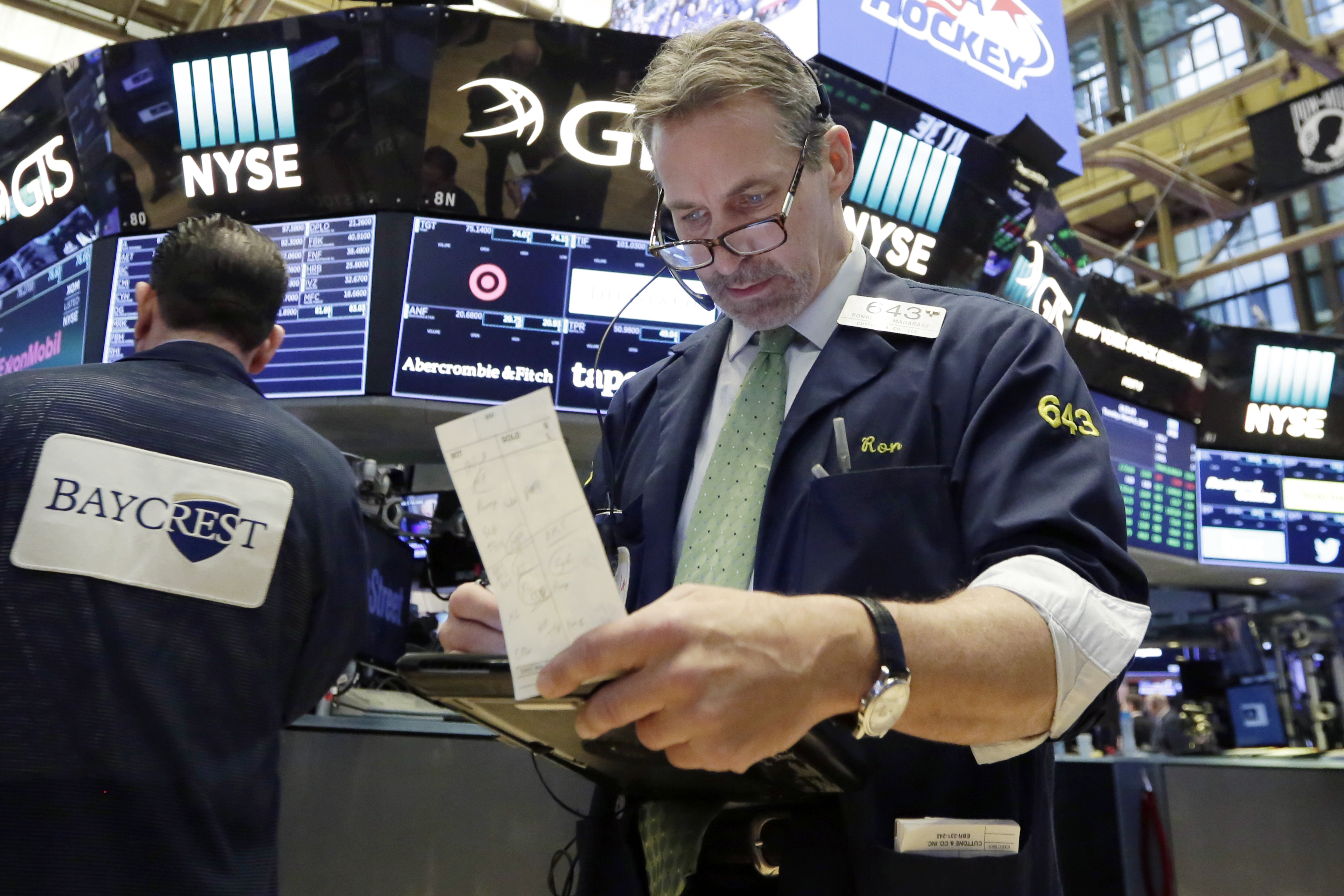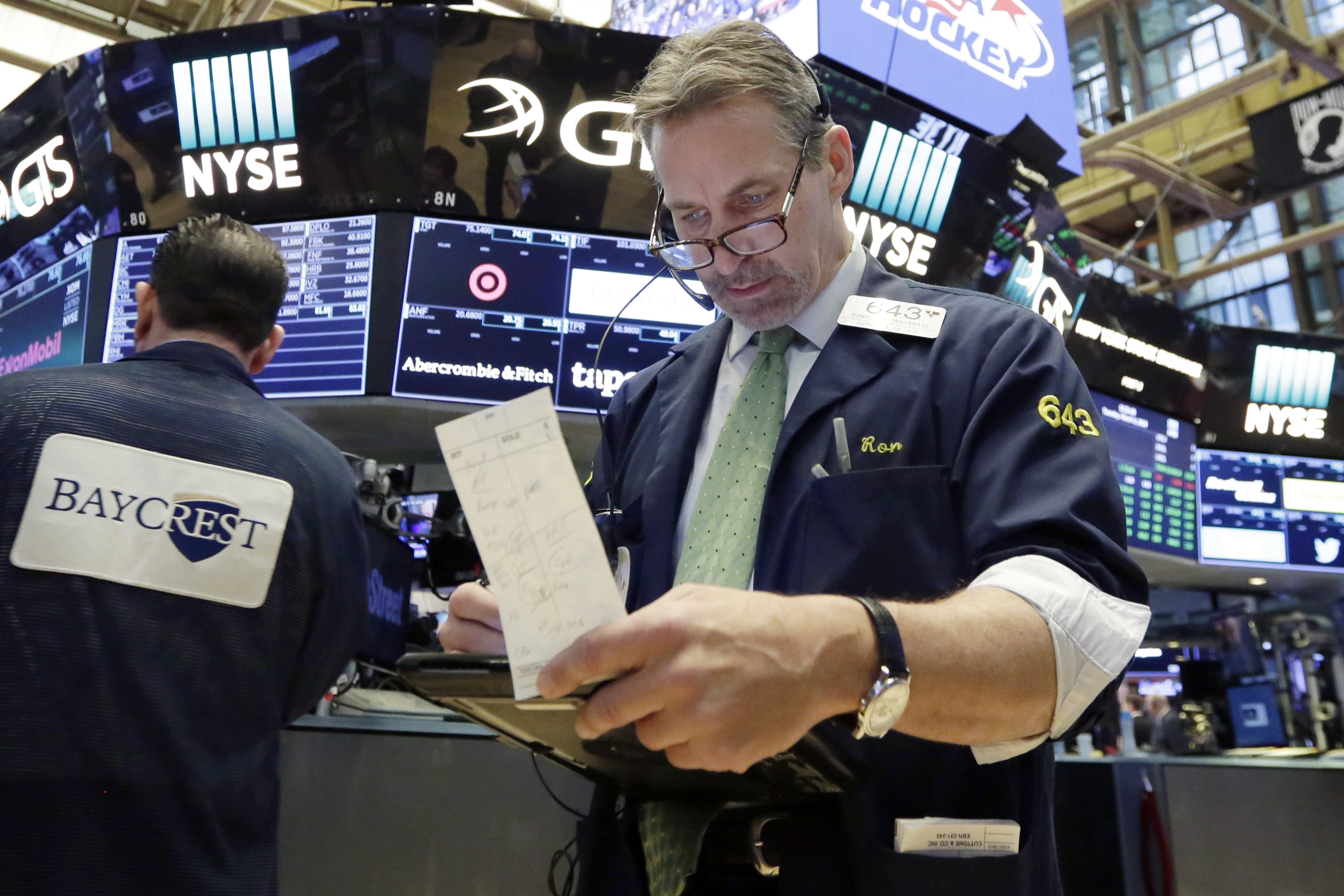
By MARLEY JAY
AP Markets Writer
NEW YORK (AP) — U.S. stocks were split Monday as technology companies continued to climb, but Boeing and other industrial companies gave back some of the ground they won on Friday. Companies like Apple and Alphabet, Google’s parent company, and chipmakers including Micron Technology have led the market’s recovery in recent weeks. Retailers including Amazon and Starbucks also made headway.
The market was coming off its biggest gain in a month following the February jobs report, which showed strong hiring and moderate growth in wages. Inflation has been the market’s dominant concern over the last six weeks, and two more measuring sticks of inflation will be reported this week as the Labor Department discloses data on consumer prices Tuesday morning and producer prices on Wednesday. Prices paid by consumers jumped in January and so did producer prices, which measure the cost of goods before they reach the consumer.
The Federal Reserve is gradually raising interest rates to keep inflation in check, and it expects to boost rates at least three times this year. JJ Kinahan, chief market strategist for TD Ameritrade, said investors are looking at a lot of data but are really asking one question.
“If you think about the selloffs that we’ve had, they’ve all been about ‘are we going to get a fourth rate hike or aren’t we?'” he said. The S&P 500 index fell 3.55 points, or 0.1 percent, to 2,783.02. The Dow Jones industrial average declined 157.13 points, or 0.6 percent, to 25,178.61.
Almost all of that loss came from three industrial stocks: Boeing, Caterpillar and United Technologies.The Nasdaq composite finished at another record high after it added 27.51 points, or 0.4 percent, to 7,588.32. The Russell 2000 index of smaller-company
stocks rose 3.91 points, or 0.2 percent, to 1,601.06. Most of the stocks on the New York Stock Exchange ended the day higher. Optical communications company Oclaro surged after it agreed to be bought by optical networking company Lumentum Holdings.
The deal values Oclaro at $9.99 a share, or $1.69 billion, and its stock gained $2.16, or 27.5 percent, to $10.01. Lumentum also rose $3.03, or 4.4 percent, to $72. Late Friday the Wall Street Journal reported that Intel might try to buy rival Broadcom. Broadcom is trying
to buy a third chipmaker, Qualcomm, for $117 billion, and the Journal said that if that deal appears to be moving forward, Intel will consider responses that could include an attempt to buy Broadcom.
It could also attempt a smaller deal. Broadcom jumped $9.06, or 3.6 percent, to $262.84 while Intel fell 67 cents, or 1.3 percent, to $51.52. Qualcomm gave up 22 cents to $62.81.
Industrial companies like aerospace and defense firms and machinery makers lost about half of what they gained during their rally Friday. Boeing shed $10.33, or 2.9 percent, to $344.19 and Lockheed Martin lost $7.39, or 2.2 percent, to $333.10. Construction equipment maker Caterpillar dipped $3.75, or 2.4 percent, to $154.50.
Industrial companies have bounced around since President Donald Trump said he would order tariffs on imported steel and aluminum. That will mean higher costs for companies that use those metals to make machinery, and their sales could be hurt if other companies respond by placing tariffs on goods made in the U.S. The February jobs report, which came out on Friday, eased investors’ minds and sent stocks jumping.
The market had tumbled in early February following the January jobs report, which showed a surprise spike in hourly wages. Wall Street worried that that might be the start of faster inflation, which would lead the Federal Reserve to raise interest rates more rapidly. Higher rates slow down economic growth. Goldman Sachs said David Solomon will become its sole president and chief operating officer, clearing the way for Solomon to become the firm’s next CEO.
Solomon and Harvey Schwartz had shared both job titles, but the company says Schwartz will retire next month. Last week the Wall Street Journal said CEO Lloyd Blankfein could retire as soon as the end of this year, and that Solomon and Schwartz were the only two candidates to replace him. Goldman’s stock gained $2.61, or 1 percent, to $273.38. Benchmark U.S. crude declined 68 cents, or 1.1 percent, to $61.36 a barrel in New York. Brent crude,
used to price international oils, shed 54 cents to $64.95 a barrel in London.
Wholesale gasoline lost 1 cent to $1.89 a gallon. Heating oil fell 2 cents to $1.86 a gallon. Natural gas climbed 5 cents to $2.78 per 1,000 cubic feet. Bond prices edged higher. The yield on the 10-year Treasury note dipped to 2.87 percent from 2.90 percent. Gold dipped $3.20 to $1,320.80 an ounce. Silver lost 7 cents to $16.54 an ounce. Copper lost 1 cent to
$3.12 a pound.
The dollar slid to 106.35 yen from 106.77 yen late Friday. The euro rose to $1.2336 from $1.2313. The German DAX rose 0.6 percent and the FTSE 100 in London lost 0.1 percent. France’s CAC 40 eked out a small gain. Tokyo’s Nikkei 225 added 1.6 percent and the Hang Seng of Hong Kong jumped 1.9 percent. The Kospi in South Korea gained 1 percent.



















